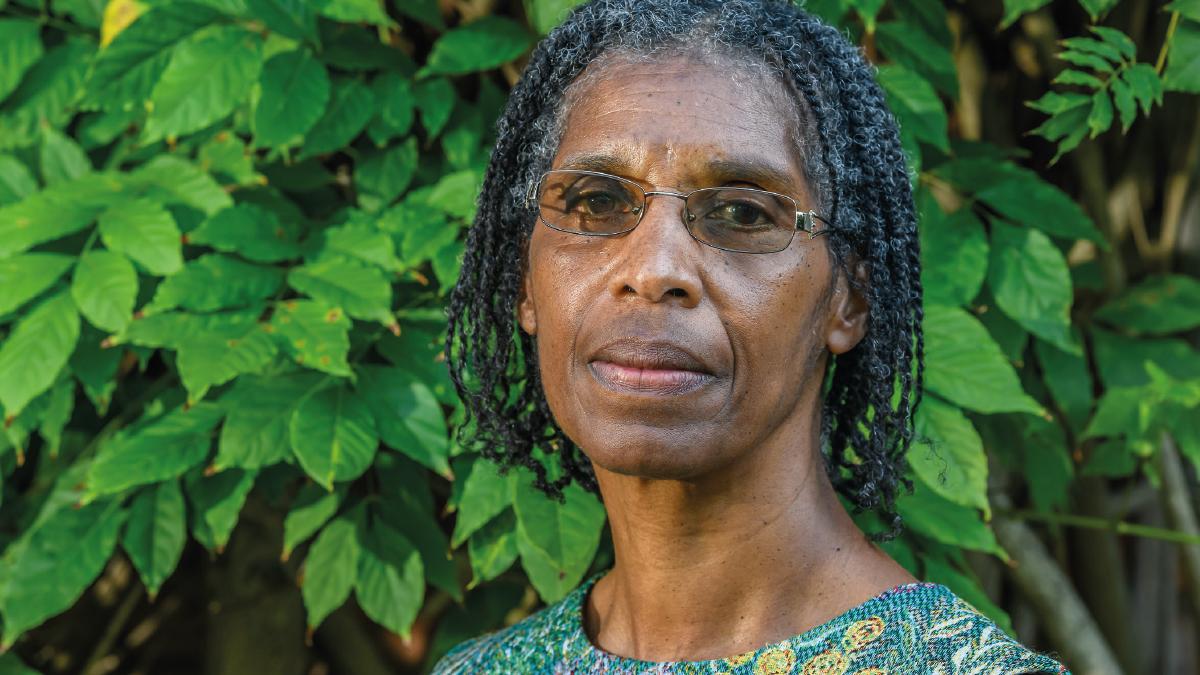Dr Melrose Stewart asks what’s changed – 75 years after HMT Empire Windrush arrived in Britain – when it comes to educating healthcare professionals about race

Last year, a survey conducted by the British Medical Journal found that ‘the majority of Black people living in Britain have reported being discriminated against by healthcare professionals because of their race’ (Iacobacci, 2022).
As a Black chartered physiotherapist, and a child from the Windrush generation, I still vividly recall the racism of my student days, and the fights for justice in the ‘60s and ‘70s race riots. So, this report is damning evidence of the continuing lack of commitment to eradicating racism in healthcare, and in society more generally.
Between the passing of the British Nationality Act in 1948, granting the status of British subject to citizens of the UK and colonies, and the passing of the Immigration Act 1971, a generation of people arrived from the Caribbean to the UK. My family was one of them. They came by invitation from the British government to help in the rebuilding of the country following the devastation caused by the two world wars.
Addressing inequity

During the racially hostile environment of my undergraduate years, rarely were the problems of racism in healthcare articulated openly by lecturers, supervisors, or students. Similarly, neither were the cultural needs of Black health and care of patients. My emergence from this challenging backdrop as a qualified practitioner in 1975 might prompt the question, why make a fuss now, decades later? One reason is that I often wonder if I should have been more vocal and railed more intensely against the prevailing injustices. More importantly, when I compare my student days with healthcare education today, I continue to see dismal failures in addressing inequality and racism.
We will never know the number of users of health and social care services who have suffered and died because of the racism of health care professionals. Similarly, we will never know the number of health and care students, and emergent practitioners, whose education and careers have been either destroyed or stifled by continuing racism.
Curiously, whilst the undercurrent of racism was rarely discussed in our classrooms, outside it was a constant topic of conversations between fellow Black students, quite often fired by the injustices we experienced. Studying to be a healthcare practitioner in a predominantly white and racially-charged environment, I had no support from tutors or peers in challenging patients who expressed verbal and non-verbal racial aggression. Indeed, white classmates, and senior figures in authority, were themselves indifferent or openly racist. When students are trying to assimilate within the wider university, and navigating through demanding academic courses, the burden of the fight against racism brings added stresses.
The history of colonisation, its repercussions, significance and impact in teaching and learning within my curriculum were never explored. When, in my pathology class, I first learned of the Tuskegee experiment (a catastrophic unethical act where the known treatment of choice for syphilis was deliberately withheld from Black participants (Centers for Disease Control and Prevention, 2022)), I became acutely aware that not one of my tutors even thought about the trauma that studying the topic might inflict on someone like me.
Re-shaping healthcare education
Decolonisation of healthcare curricula calls for an overhaul of teaching and learning within the UK. Where curricula reflect a colonial mentality and manifestations of the oppressors and the oppressed proffer different versions of historical data and experiences, these must be reconciled. As in education generally, deconstructing and reconstructing notions of empire, analysing the colonial past and exploring their subsequent expressions in racism in teaching and learning are fundamental to reshaping healthcare curricula. Unfortunately, however, it is not always readily apparent where individuals who are motivated or equipped to conduct the necessary revisions at policy and more senior levels will emerge from.
Additionally, developing a culturally competent health and social care workforce able to recognise and tackle racism, as part of their professional development, is rarely itemised as a measurable outcome in healthcare education.
We will never know the number of users of health and social care services who may have suffered and died because of the racism of healthcare professionals. Similarly, we will never know the number of health and care students, and emergent practitioners, whose education and careers have been either destroyed or stifled by continuing racism.

Building on successful strategies
It was not until 1976 that the Race Relations Act made it unlawful for anyone to discriminate on grounds of race, colour, nationality (including citizenship), and national or ethnic origin. Would it have made any difference to my training if the act had been passed before? The answer perhaps lies in the evidence that we have now, nearly half a century later. Researchers still expose continuing educational inequities between those who enter higher education with the same qualifications (Petrie 2021). Development of Black, Asian, Minority Ethnic networks, mentoring requests, allies and similar support groups present copious evidence that racism remains pervasive - and research on effective strategies to tackle it are still needed (Powell et al, 2022).
Healthcare students still report inequities they face in their clinical experiences. Tutor awareness of how racial bias and discrimination manifest in health education courses, and how these align with the experiences their Black students describe, remain largely unexplored, unknown and unpublished (Joseph et al 2021).
It is 75 years since the Empire Windrush docked in the UK bringing many early contributors to the NHS, which coincidentally also celebrates 75 years of existence. Now, as it was back then, the struggle continues to address race discrimination in health and health care education. Ownership of this task falls to us all in different ways, but we can start to pinpoint and disseminate information about strategies that have successfully reduced racist behaviour. Otherwise, it may be the case that for several more decades to come, we might fail to address racism in education.
Dr. Melrose Stewart MBE is a chartered physiotherapist, honorary lecturer at the University of Birmingham, and panel member of His Majesty’s Courts and Tribunal Service. Website: melrosestewart.com Twitter @melrosestewart1
With thanks to Professor Clive D. Fraser for his contributions to this article
Resources
Find out how the NHS, the CSP and the Council of Deans of Health are progressing work to achieve equity:
The CSP’s Call Out Microaggressions campaign
The CSP’s diversity networks
NHS Equality Delivery System 2022
NHS Workforce Race Equality Standard (WRES) 2022 data analysis report for NHS trusts
Council of Deans of Health (2023) Anti-racism in AHP Education: Building an Inclusive Environment
References
- Iacobucci G. 2022. Most Black people in UK face discrimination from healthcare staff, survey finds. BMJ 2022.
- Centers for Disease Control and Prevention. The U.S. Public Health Service Syphilis Study at Tuskegee. Accessed on 19/10/2022.
- Petrie K., 2021. Graduate Outcomes in London. The Social Market Foundation. Accessed on 19/10/2022
- Powell R. et. al 2022. Tackling racism in UK health research. The British Medical Journal BMJ. 2022.. Accessed on 19/10/2022
- Joseph O, Flint S, Raymond-Williams R, Awadzi R, Johnson J, 2021. Understanding Healthcare Students’ Experiences of Racial Bias: A Narrative Review of the Role of Implicit Bias and Potential Interventions in Educational Settings. International Journal of Environmental Research and Public Health. Accessed on 19/10/22
Find Out More
Number of subscribers: 2




































